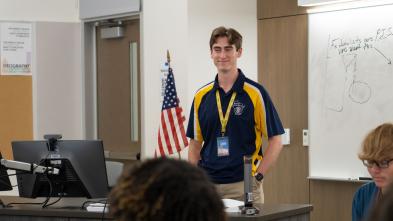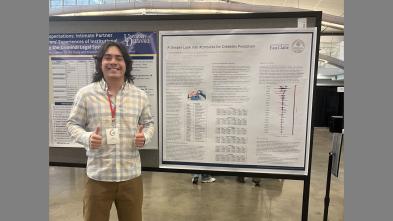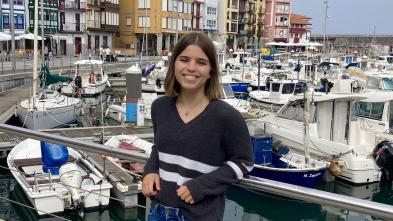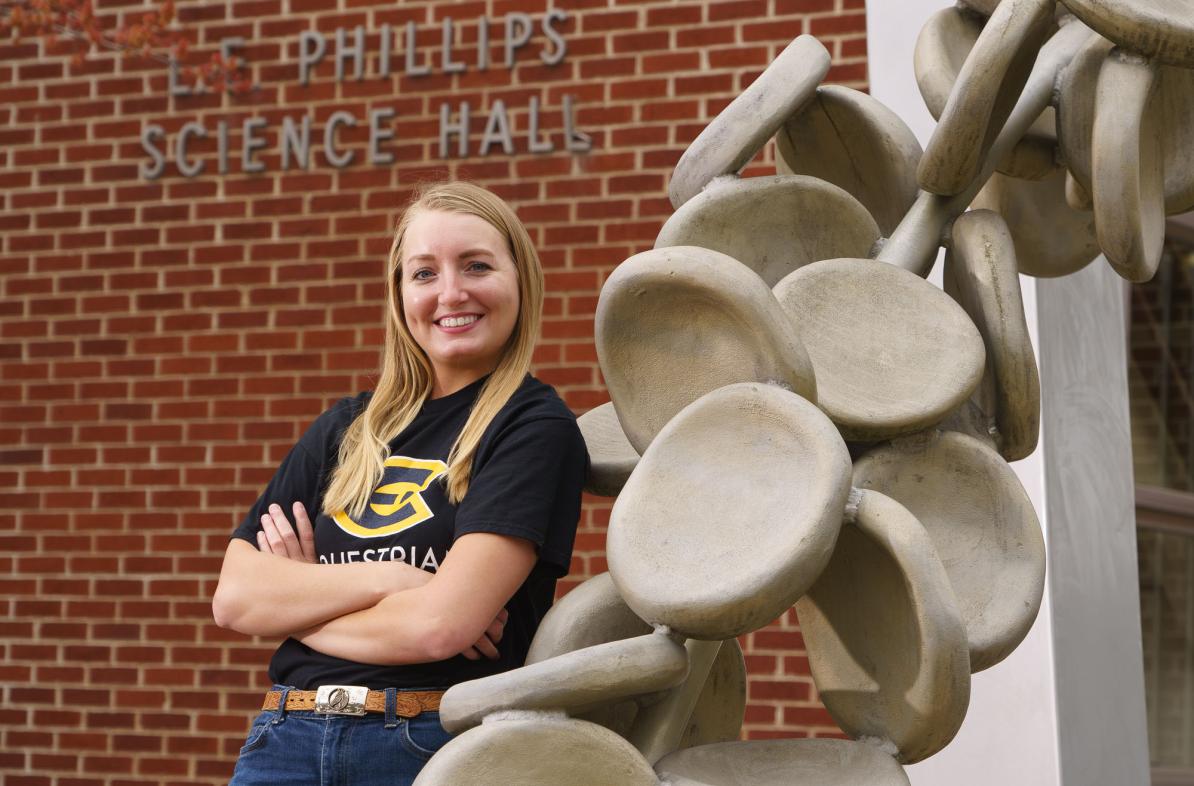
Biology grad dreams of career caring for animals: Kacey Soetebier
Soon-to-be University of Wisconsin-Eau Claire graduate Kacey Soetebier is excited to complete her bachelor's degree in biology and is preparing to take the next steps in reaching her ultimate goal — becoming a zookeeper.
“I know it’s not a very common goal,” Soetebier says. “In fact, I’ve had faculty tell me they’ve never actually had a student with that career in mind. So that’s kind of cool I think.”
Although studying environmental biology and ecology has certainly strengthened her desire to pursue a career caring for zoo animals, becoming a zookeeper has been a dream she says was planted in her early childhood.
“I was born in St. Louis and moved to Wisconsin when I was still a baby, but I remember traveling back to St. Louis throughout my childhood to see my grandparents and visiting St. Louis Zoo during every trip,” says Soetebier, whose grandfather worked as a wildlife conservation agent for the state of Missouri, greatly influencing a family love of animals.
In addition to these fond memories of the zoo and learning about the work her grandfather did, another childhood influence for Soetebier and millions of other animal-loving kids worldwide was the late Steve Irwin and his family of animal experts and advocates. Irwin was an Australian who hosted the television wildlife documentary series “The Crocodile Hunter” until his death in 2006.
“I grew up watching his show, as well as “Bindi the Jungle Girl” starring his daughter, who became my idol,” she says. “I saw a big part of myself in her love and passion for the animals she cared for.”
In becoming a zookeeper, Soetebier’s goals are much like the educational mission of the Irwin family and their extensive conservation enterprise at the famous Australia Zoo.
“What interests me most about the job is the dual role of caring for amazing and unique animals while finding ways to teach the public about what makes the animals so special, how their ecosystems work and why their conservation is so important,” Soetebier says.
Dr. Heather Fielding, associate professor of English and director of the University Honors Program, worked with Soetebier for her Honors capstone course, and recalls a motivated student who she believes will make an excellent zookeeper.
“Kacey’s positivity and openness are contagious, and she is one of those rare people who can make others feel more comfortable sharing their thoughts in discussion,” Fielding says. “I think Kacey has a lot of empathy. I’ve seen it in her interactions in class, but it’s also something that drives her deep, longstanding commitment to animals and animal welfare.”
While Soetebier admits that her exact route to a career running a zoo is somewhat uncertain, her 2022 summer plans include an exciting first step in the right direction, a five-week marine wildlife seminar on the Florida Gulf Coast.
“I’ll be enrolled in the Coastal Marine Education and Research Academy (CMERA) in Clearwater, Florida, studying sharks and ‘rays,” she says. “It’s a residential program combining lectures on the different ecosystems with daily field work catching, tagging and recording data on sharks and stingrays.”
The CMERA program is operated by a team of international marine biologists and Coast Guard-licensed boat captains. They accept college-age students from across the U.S. and many other countries for up to six weeks of immersive research experience.
“If you study with them for a minimum of four weeks, your name is added to any published research that results from the sessions,” Soetebier says. “It’s really amazing experience that will help me in the eventual job hunt.”
Soetebier is looking at this summer opportunity in two ways, she says. Most importantly it’s knowledge and experience she knows will serve her well, but it’s also a reward to herself for graduation.
“This trip is all coming out of my own pocket, money I’ve worked really hard to save over the years, but it’s so worth it,” Soetebier says.
When it comes to hard work and saving for college, Soetebier found herself in a unique financial situation while still in high school, one that she says brought her both resilience and the deep pride that comes from accomplishing things on her own.
“I came into UW-Eau Claire after spending 10 years in the foster care system,” the Pittsville native says. “I’ve been on my own since I turned 18 and left my last foster placement.”
Due to an unforeseen situation involving her mother, Soetebier was placed in a “kin-like” permanent foster placement at the age of 10.
“It was a family we knew, but they were not set up at that time as licensed for foster care, so they had to quickly do the necessary steps,” she explains. “They are really a nice family, and it was all good, but it was hard for me not to take on feelings of being a burden — that’s just part of my personality. Because of those feelings, once I turned 18, I made the choice to leave their home.”
Soetebier has an older sister and the two lived in both separate and shared foster homes over the years; her sister is still living in the Pittsville area where they grew up and attended high school. When visiting the town she calls home, Soetebier has maintained what she says is a good relationship with her biological mother, who also still lives in the area.
Describing herself as determined and independent, Soetebier feels tremendously fortunate to be where she is now, on the brink of starting the life working with animals that she has dreamed of.
“I’m not going to lie though, it’s been hard,” she admits.
Since leaving the foster care system, Soetebier has been supported in part by a social services network called the NorthCentral Transition Resource Agency — Independent Living (TRAIL) of Wood County.
The TRAIL agency assists young adults who have turned 18 while in a court-ordered foster care home or other custodial placement. Program aid includes financial support and assisting the young adults to secure housing, health care, employment and educational connections, along with financial management skills.
“They connected me to the Herb Kohl Scholarship, which has been a huge four-year help for me in attending college,” she says. “The TRAIL program also offered me additional funds for the things not covered by the Kohl scholarship, like clothing, groceries, car expenses.”
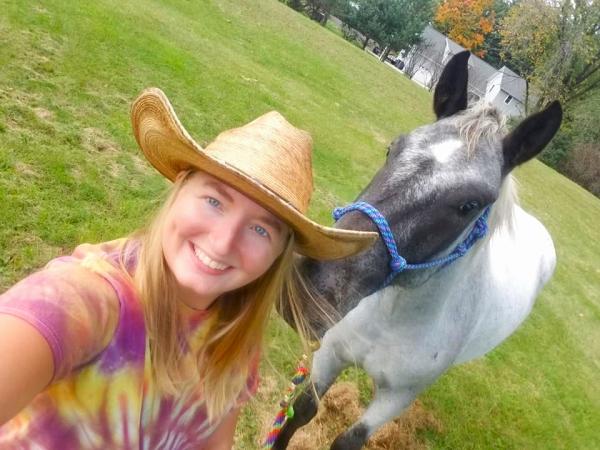
Kacey Soetebier was the only returning Western rider for her third year on the UWEC Equestrian Team, and enjoyed the challenge of filling the roles of fundraiser, coordinator and Western team captain.
Once at UW-Eau Claire, she says a huge “life-saver” has been the Fostering Success program, designed to offer support and community for college students like Soetebier who aged out of foster care and arrive at college without some of the family support and resources that help students to start off successfully.
“This program does a phenomenal job offering some of the day-to-day needs that become hard to manage on a student budget,” Soetebier says, referring to access to the Campus Closet for clothing needs and the Campus Harvest food pantry for food needs.
Kayla Peters, academic advisor for life and health sciences in the Advising, Retention and Career Center at UW-Eau Claire, explains more about how the program supports students.
“Essentially, we support former foster or homeless youth on campus,” Peters says. “We provide special welcome baskets, finals week care packages, general supplies (toiletries and school supplies) and we host social events each semester. Students connect with us after self-identifying in a planning questionnaire during Orientation, but they can opt into our services at any time.”
Soetebier says that above all, the community that she found through Fostering Success, being among students who share a history in the foster system, was the greatest benefit of the program.
“I’ve always struggled with making attachments, and this group of peers became an important support to me,” she says. “From making tie blankets or cookies to just getting together for pizza, our connections became tight. I’m grateful for that — being part of this group helped me become better at learning to ask for help when I need it.”
Taz Smith, a senior criminal justice major from Green Bay, was a co-founder of the Fostering Success program when she was just a first-year student. She wanted to formally establish supports for former foster care students like herself, and she was very grateful for Soetebier’s avid participation in events.
“Kacey was a key member of our program,” Smith says. “She was always the first to show for events and the last to leave, and helped with everything from setting up events to sharing flyers for basket item donations in the community. She was a friendly and familiar face for new students to relate to.”
A second avenue for vital social interactions and personal growth for Soetebier was the four years she took part in the Blugold Equestrian Club. After having access to horses through much of her youth, finding a student equestrian club during college was a wonderful opportunity, she says.
“Riding and showing with the club became a huge part of my confidence-building throughout college,” Soetebier says. “And it was so satisfying over the years to watch the new younger girls join the club, become better riders and build trusting friendships. It’s been amazing.”
While multiple scholarships were fundamental in her pursuit of higher education, Soetebier came to UW-Eau Claire ready to work and earn her way, avoiding student debt entirely, if possible.
“I’ve worked for three years as a custodian in the residence halls,” she says. “My supervisor in the job, Daryl Erwin, has been one of the biggest supports to me throughout my time as a student. He knows my whole story, asks me how I’m doing all the time, asks how my family is, how classes are — he’s just been there whenever I’ve needed support.”
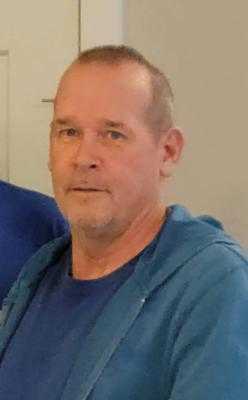
Daryl Erwin, custodial lead for UW-Eau Claire's Facilities department
Soetebier says that it was Erwin who made sure she maintained the minimum number of summer hours to qualify for housing in the residence halls, a factor that had a major impact on her ability to stay in school at all.
“Being able to earn my income and have summer housing costs covered was a lifeline for me,” says Soetebier, who adds that between work, her academic year assignments for four years and the summer employment placements, every residence hall on campus feels like home to her.
“I’ve either lived or worked in every single hall on campus; it’s been great.”
This key support from Erwin is a great example of the positive impact of student employment at UW-Eau Claire that goes well beyond the earned income. Erwin says he was very happy to have played a role in Soetebier’s overall success, and he will miss her when she leaves his staff.
“When we first met, Kacey was a little shy and reserved,” Erwin says. “As time went on, she started to open up and seemed more at ease, even becoming a sub for a volleyball league I play in. She has been an awesome employee for me; she is self-motivated and a very hard worker. Kacey is a real joy and she will be missed.”
“I could gush all day about Daryl,” she says. “He’s a former Marine, which is obvious at times, but he’s just so kind and genuine. He even offered to bring his family to my graduation ceremony.”
Grateful for Erwin’s kind offer to attend, Soetebier will be joined at commencement by two of her dearest friends from college, including her first- and second-year roommate whose mother also is attending.
“My biological mom unfortunately cannot make it due to physical disabilities. Otherwise, she would be here," Soetebier says.
Support students like Kacey
If you would like more information or wish to donate funds or supplies supporting the Fostering Success Program, contact Kayla Peters at petekayl@uwec.edu or call 715-836-2023.
You may also like
